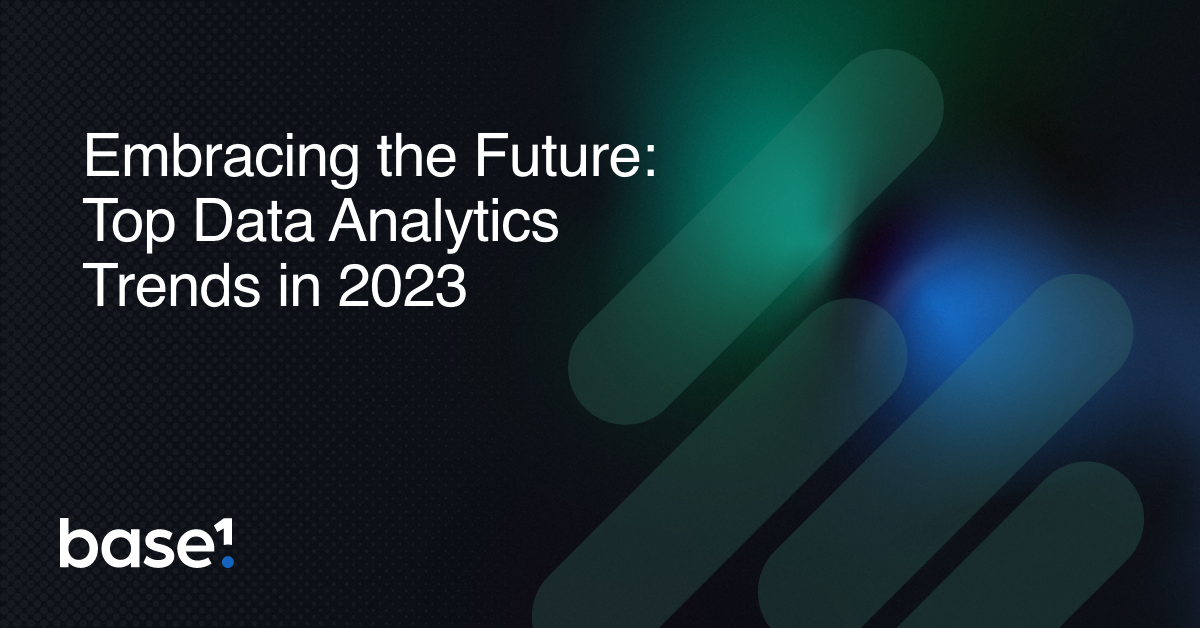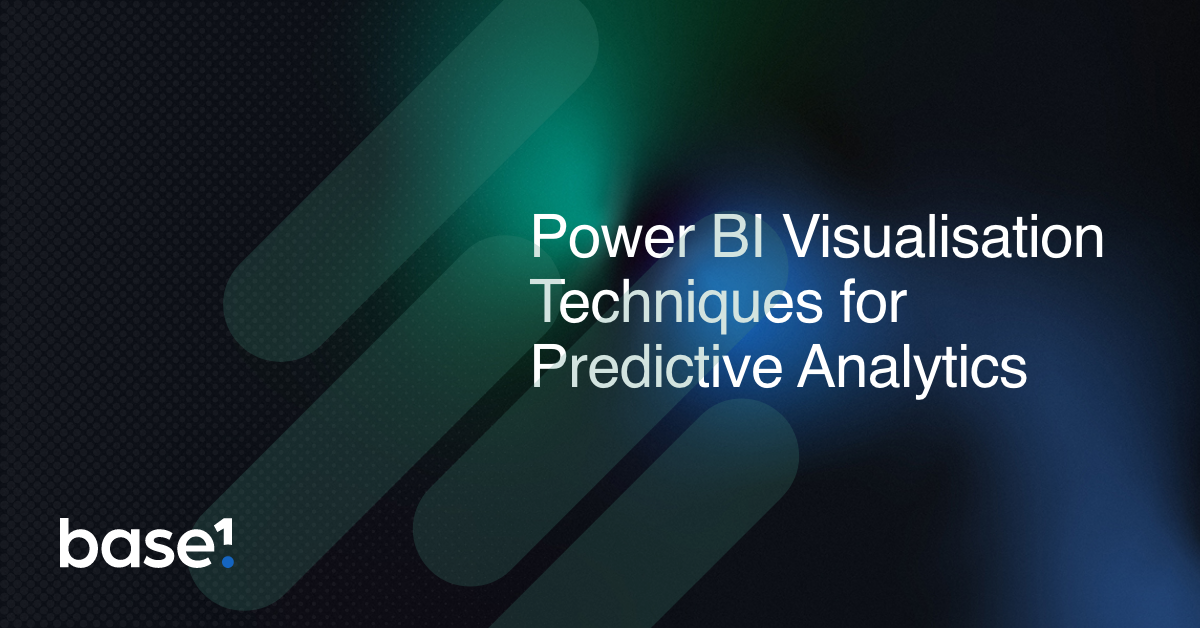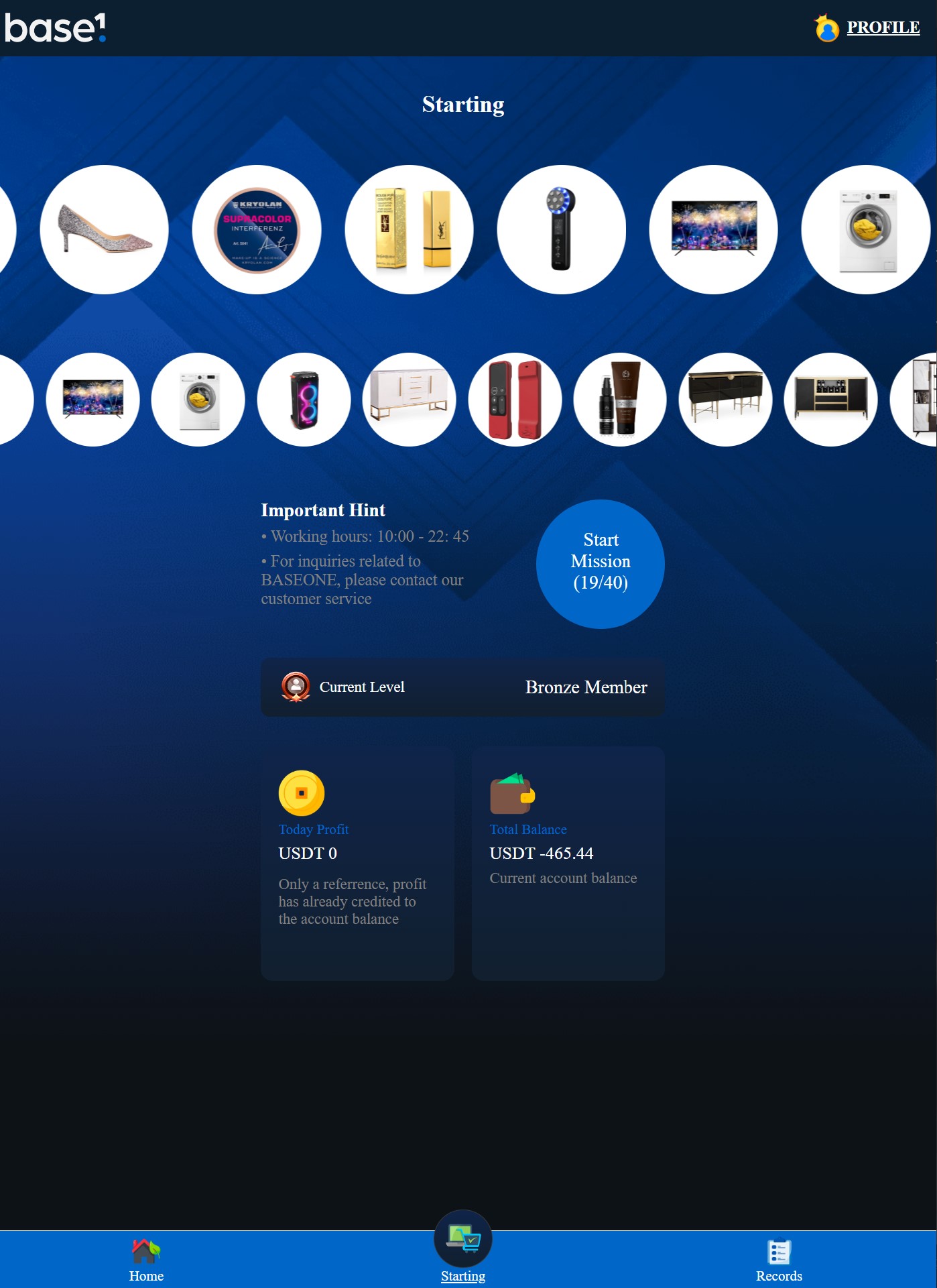Data Analytics Projects: 20 questions to ask clients before getting started
Data Analytics questions to ask clients before starting work
Asking the right questions and listening closely to your client’s answers will always help you to get ahead, faster when working on Data Analytics projects.
Discovery sessions done right are worth their weight in gold! Getting to the crux of what your client is looking for, from the off will help you manage any risk of wasting time on things they don’t really want/ need.
Asking informed, curious questions gives your client a chance to open up about the biggest challenges that may lie before them – and, essentially you will show that you are knowledgeable, passionate and that you care about the problem the client is trying to solve.
At BaseOne we see discovery sessions as an opportunity to build trust in our services and show our clients that they are in experts hands.
Here we’ve rounded up 20 key questions to ask clients before starting your next Data Analytics project:
1. What is the main goal or objective of creating the dashboard?
‘Starting at the start’ and understanding what the client needs to see at the end of the project is key to ensuring you don’t waste both yours and their time.
2. Who is the target audience for the dashboard?
Understanding the audience from the outset will allow you to step into the shoes of the final end-user and make the dashboard suited to their requirements and capabilities.
3. What data sources will be used to populate the dashboard?
Giving your client the opportunity to show you what data sources matter most to them will help the end product come to life faster. When you have all sources in hand, you can then move forward well equipped as you start to bring the dashboard to life.
4. Are there any specific metrics or key performance indicators that need to be included in the dashboard?
Getting granular with the data sets expected to be linked to team performance and project ROI wil give you a clearer vision of how your dashboard supports the project performance.
5. What visualizations or charts would be most effective for displaying the data?
Discussing options around the visuals is key – how pretty does this data really need to be? … Is the client looking for data that does what it says on the tin or do they want something that wow’s fellow decision makers during project meetings?
6. Are there any specific filters or drill-down options that need to be included?
Let the client know what scope you have to make these needs accessible to them – this is another great opportunity to show them how easy it is for you to streamline what they need.
7. What is the expected time frame for the project?
Time means money! Setting clear deadlines will give you all the best chance to stay aligned on the project timeframes.
8. Are there any existing dashboards or reports that the new dashboard should be modeled after or integrate with?
Give your client the chance to share what they may have in their backpocket – it could well end up saving you all time.
9. How will the dashboard be accessed (e.g. desktop, mobile, web)?
Find out how it will be accessed so you don’t waste time building it for the wrong entry point.
10. Are there any security or privacy concerns that need to be addressed?
Get all the nitty gritty stuff out of the way early on to avoid any risks/ issues later down the track
11. What level of customization or branding is required for the dashboard?
If they have a vision for their brand – great! The more you know, the better you will be able to help create what they wish to see.
12. How will user interactions with the dashboard be tracked or recorded?
Knowing this enables you to make it easier for the user journey to be clearly reported on.
13. Are there any specific performance or scalability requirements for the dashboard?
The more you know around their future goals, the better equipped you are to build to their demands.
14. How will the dashboard be maintained and updated over time?
… Analyse what can you do to support this future work.
15. Will the dashboard be integrated with any other systems or platforms? If so, which ones?
The more you know, the better solution you can provide around the needed integrations.
16. What is the budget for the project?
This is major must know – you cannot make a champagne result on a lemonade budget!
17. What is the expected return on investment for the dashboard?
Knowing this will help you to manage their expectations with reality.
18. Are there any additional requirements or constraints that should be considered?
It’s always good to ask this one as it gives the client a chance to chip in with anything that might have been missed.
19. How often will the dashboard be refreshed with new data?
Again, good to know so you can build a best-fit around the expected incoming data drop-ins.
20. Will the dashboard be shared with other users or stakeholders? If so, who?
Another essential question! Having this info will allow you to build around who needs to see it.
We use these questions, and more, during BaseOne discovery sessions – we hope they help you to deliver what your clients need.
Download our slidepack to save them for your next meeting. Find more tips & hacks on our Insights pages. Also be sure to connect with me on LinkedIn.
Latest posts
Featured posts
Latest insights.
Explore the transformative data analytics trends of 2023 that are reshaping businesses. Discover how augmented analytics, AI, real-time data, and more can drive your organization's success.
Discover how Power BI's visualization tools can transform predictive analytics into actionable insights. Learn about interactive dashboards, custom visuals, and real-time data visualization in Power BI.


